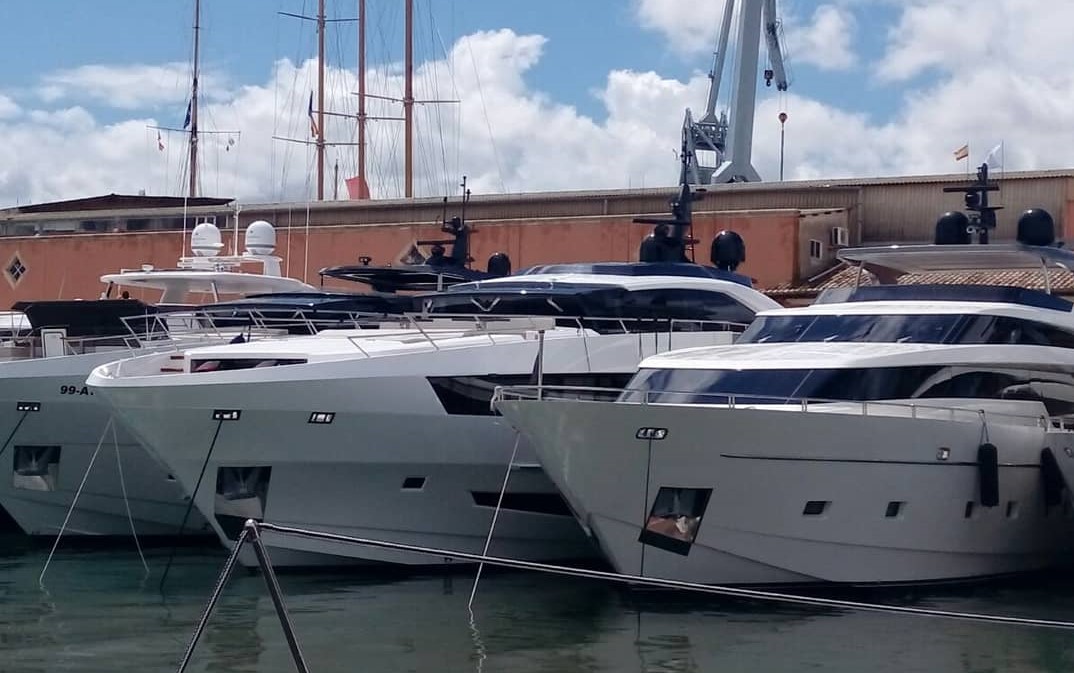Last November 18, 2019 the Resolution of the Balearic Port Authority (APB) was published in the Spanish Official Gazette approving the so-called ‘Tasa de actividad’, which consists of a fee on the business activity of companies and sole traders rendering repair and refit services to yachts in those Balearic Islands Ports under the jurisdiction of the State, that is, the ports of Palma and Alcúdia (Mallorca), the port of Mahón (Minorca), the port of Ibiza and the port of ‘La Savina’ in Formentera. The fee was due to come into force by last January 1st, 2020 but on December 18th, the APB Council decided to suspend it temporarily due to the strong unease and controversy it caused in the local yachting industry.
The rate ranges from 1.5% to 3.5% on the turnover of the Companies rendering such services within the service areas of those ports and the specific percentage will depend on the kind of authorization held (permanent or temporary) and whether the services are being undertaken in those facilities expressly dedicated to repair&refit activities or in other different port facilities. The most common scenario will be that the works are carried out in those facilities expressly dedicated to such purposes, in which case the rate ranges from 1.5% to 2.5% The discussions on this fee date back some time, as it is a tax figure that was already foreseen in the State Ports Law in 2011 and is already implemented in the main Spanish State Ports. However, we had not heard much about it until now because the fee is paid by the concessionaires of the port public domain, who obviously add it to the final price of their services. Unlike the rest of the state, in the Balearic Islands a significant percentage of the repair&refit services are provided under an ‘open facilities’ model where any authorized company can work under the proper authorization. Consequently, outsourcing is very frequent in the Balearics and, considering that the taxable income is based on turnover, it’s easy to see that double, triple or multiple taxation cases may arise if measures are not taken to guarantee that only those acting on their own behalf with the client are liable for paying the fee to the ATP, and levy it jointly with the services finally invoiced. The above problems and other formal issues surrounding this fee regulation were already under discussion in July 2017, when the APB requested prior reports on the preliminary draft from some associations, among others, the Spanish Yachting Association (ANEN), of which I am legal and tax advisor. Some of the problems and misunderstandings that arose recently were already discussed in 2017 but not finally solved, and therefore have now resurfaced with force and this explains most of the heated debate over the last months. Beyond the obvious need for technical improvement of the text, in my opinion the main problem has been the lack of dialogue, information and consensus to implement the fee in a coherent way and adjusted to the reality of the Balearic yachting industry We (ANEN), jointly with AEGY (Spanish Large Yachts Association), the Balearic Marine Cluster, as well as CAEB (Balearic Business Association) and the Chamber of Commerce of Mallorca have been working together to solve problematic aspects that may derive from the practical application of the fee, and which required its temporary suspension. It is also fair to appreciate that the APB has been receptive and willing to analyze the issues raised and adjust the specifications so that the result is agreed, clear, simple and as neutral as possible, and takes into consideration the particularities and complexity of the Balearic yachting industry. [1] The minimum applicable state set out in the State Ports Law of 2011 is 1%.




